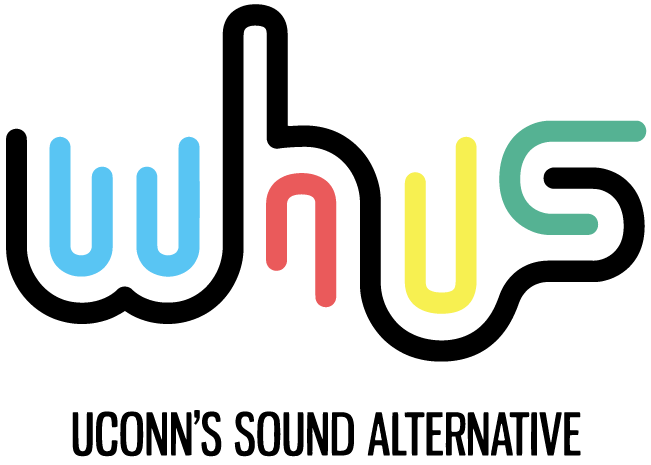Embracing the Modern
Throughout the 2000s, WHUS was still broadcasting 24/7/365 live in-person. However, the number of new volunteers was slowing down. The decrease made it harder to fill in for when there was no school, such as summer or winter.
Eventually, the station decided to set up automation in 2013. This finally allowed for 24/7 broadcasting, regardless of whether a DJ was there or not. It also lifted the weights from the shoulders of those who had to stay late to cover when someone no showed.
We also finally got Spinitron in the early 2010s! Spinitron is a “playlisting” service. It allows DJs to log what music they played during their show and when. WHUS2, our completely digital stream, starts up in 2014. Now, there’s an entirely separate place for beginner and veteran DJs alike to experiment.
And in 2014, we get our current logo, thanks to Bria Caso. Our website also receives a much-needed upgrade. Below is a color concept version of the WHUS logo.



Multimedia Production
Thanks to General Manager Ryan King and Drew Gates’ efforts, WHUS decides to take the plunge towards constructing a multimedia studio in 2014.
The studio, now called Studio D, was finished in 2015. The Multimedia Department and the Multimedia Director role are created in the same year. A big result of that was our live concert series Studio Sessions.
Late 2010s
WHUS eases the foot off the gas pedal with syndicated programming. FOr example, WHUS leaves the Pacifica network, which sourced a lot of its syndicated programming. However, by opting to give greater priority to local productions, WHUS could further cultivate its unique identity and cater to the specific interests of its local audience.
While WHUS no longer participates in IBS conferences, its members now attend events like South by Southwest, demonstrating the station’s continued commitment to staying connected with the broader radio and music industry.
The shift towards local programming further emphasized WHUS’s commitment to serving its community and providing a platform for diverse voices and musical expressions.
Fall 2018 Zine
2020s
March 2020: The coronavirus pandemic starts and in-person classes as well as radio operations are cancelled. All station meetings and correspondence becomes virtual. This extends into the following semesters and involvement fair recruitment is virtual.
Eventually, the station returns to in-person operation, with renewed emphasis on remote shows. Remote shows let DJs record their shows elsewhere and send in the audio file. This allows more shows and podcasts to become a reality at the station as WHUS alumni no longer have to come to the station to records.